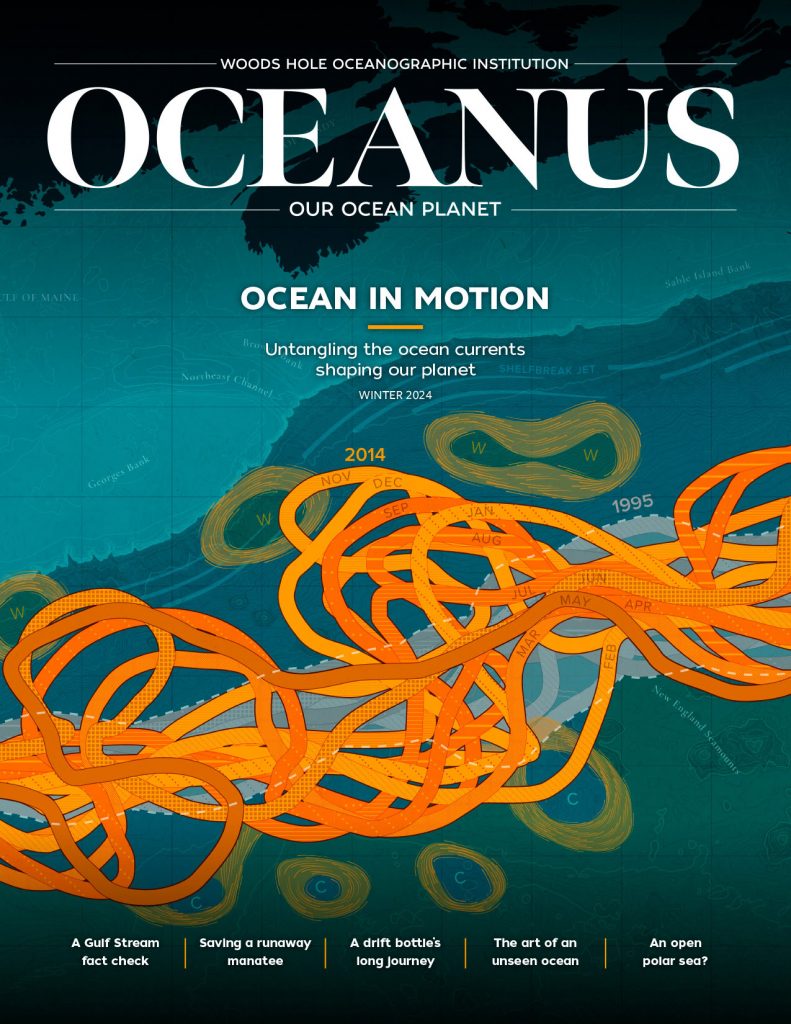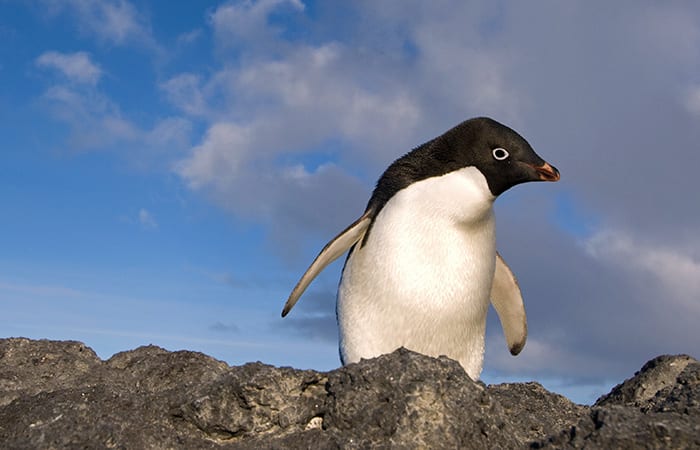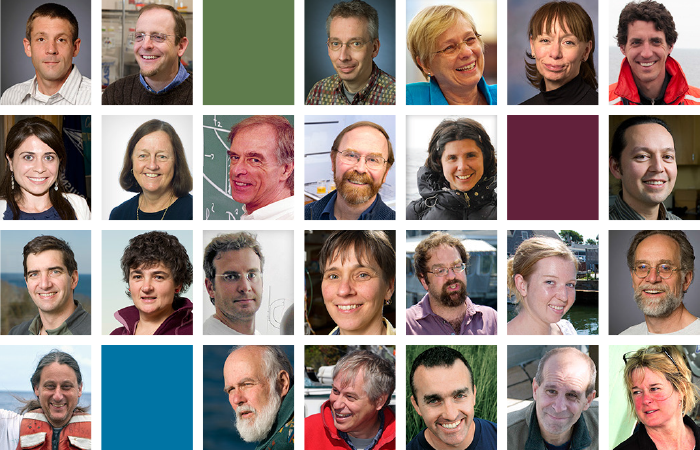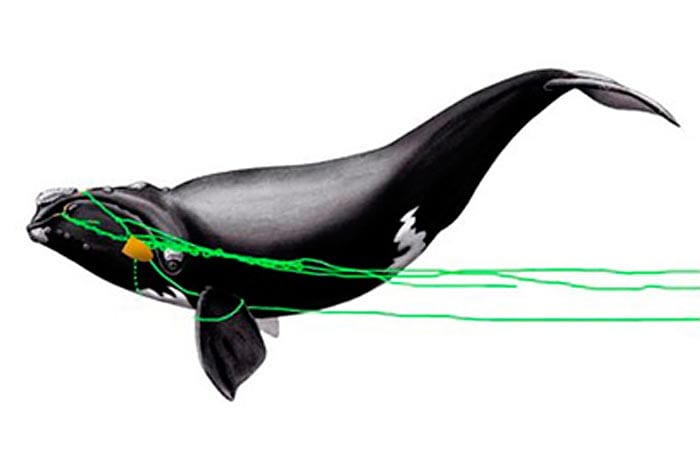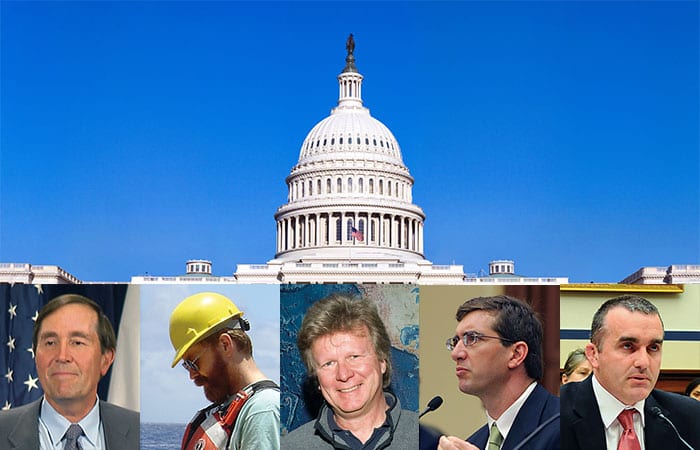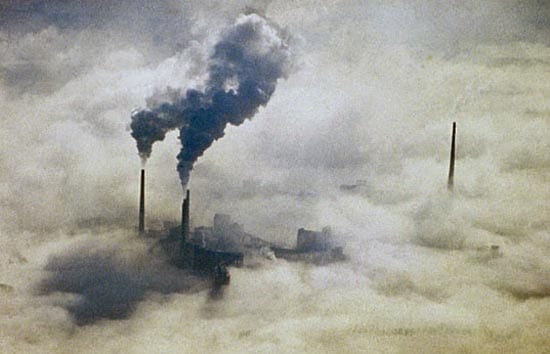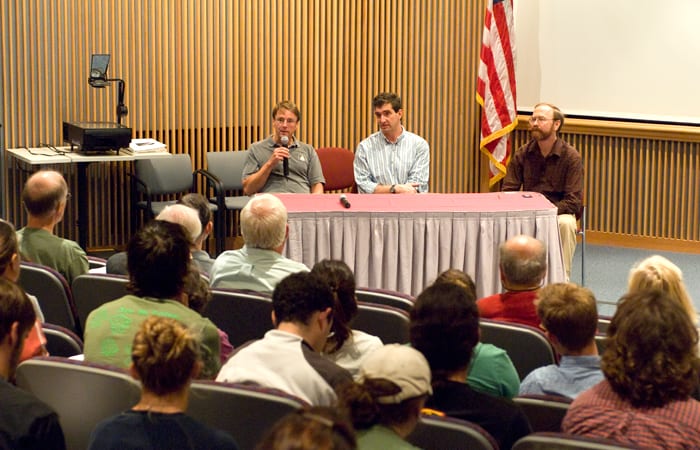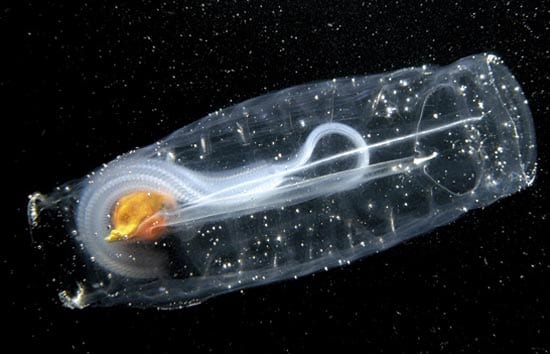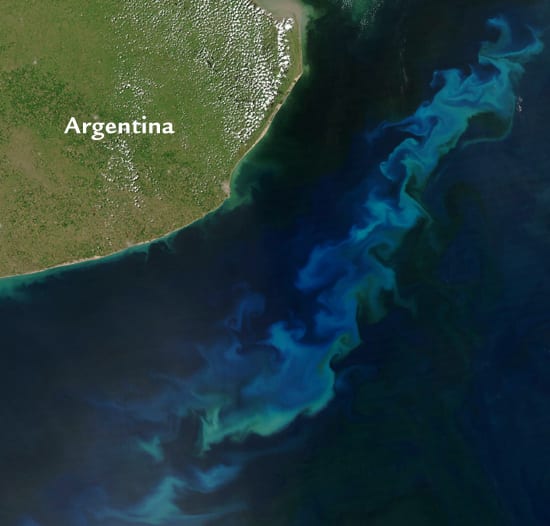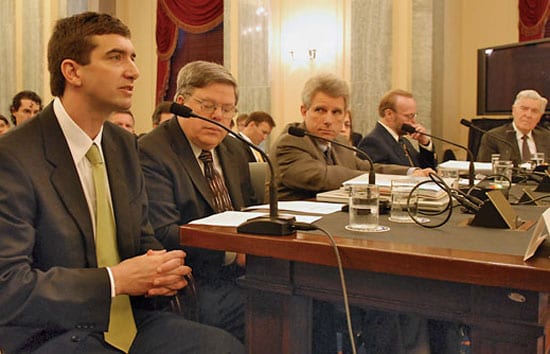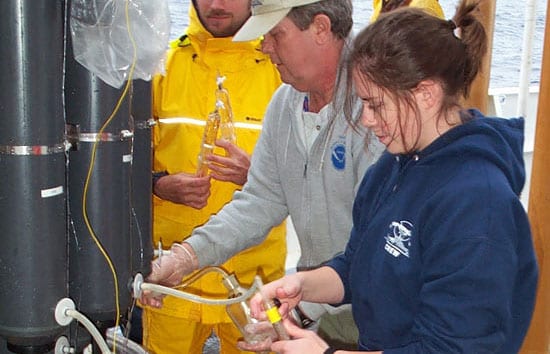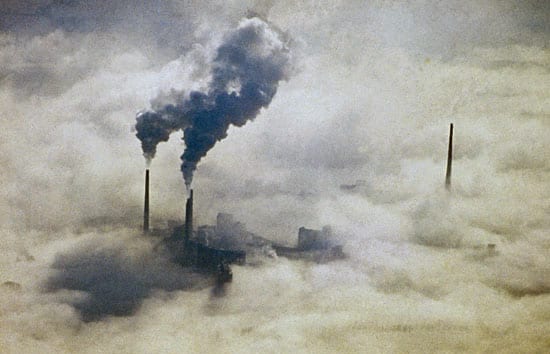Scott Doney
Refine by
Date
Topic:
Article Type
Special Series
Author
From Penguins to Polar Bears
Polar ecosystems are especially vulnerable to climate change. They are also notably hard to study and to manage. Scientists came to WHOI recently for a Morss Colloquium to address the issues.
WHOI Scientists Garner Awards in 2013
As the year 2013 ends, we profile scientists who recently received awards and recognition for their work.
To Free a Tangled Whale
Scientists successfully used a new sedative delivery system for the first time on a large whale in the wild. It calmed the 40-foot, 40,000-pound whale so that rescuers could approach safely by boat and cut away fishing gear wrapped around its head.
WHOI Scientists Bring Expertise to Capitol Hill
Several WHOI scientists have traveled to the nation’s capital, supplying Congress with scientific information and advice on problems ranging from toxic algae and oil pollution in the oceans to climate change and a controversial proposal…
The Oceans Feel Impacts from Acid Rain
The release of sulfur and nitrogen into the atmosphere by power plants and agricultural activities is making seawater more acidic, especially in coastal waters, according to a study published September 2007 in the Proceedings of…
To Fertilize, or Not to Fertilize
Global warming is “unequivocal,” the Intergovernmental Panel on Climate Change (IPCC) reported in November 2007. Human actions—particularly the burning of fossil fuels—have dramatically raised carbon dioxide and other greenhouse gases in the atmosphere, leading our…
Proposals Emerge to Transfer Excess Carbon into the Ocean
It’s sort of the planetary equivalent of moving clutter accumulating in the attic to other storage space in the basement: transferring excess heat-trapping carbon dioxide from Earth’s atmosphere into the deep ocean. A combination of…
Fertilizing the Ocean with Iron
“Give me half a tanker of iron, and I’ll give you an ice age” may rank as the catchiest line ever uttered by a biogeochemist. The man responsible was the late John Martin, former…
WHOI Scientists Testify to Congress
Marine geochemist Scott Doney and marine policy specialist Porter Hoagland traveled to the nation’s capital this spring to inform Congress about critical ocean issues: the effects of climate change and ocean acidification on living marine…
How Long Can the Ocean Slow Global Warming?
It is 4:30 a.m., far from land. A group of scientists clad in bright yellow foul-weather gear gathers in the open bay of a research ship. They wait in the chill air while the ship’s…
Earth Can’t Soak Up Excess Fossil Fuel Emissions Indefinitely
Earth?s land and oceans have been soaking up the excess carbon Earth?s land and oceans have been soaking up the excess carbon dioxide that humans have pumped into the atmosphere by burning fossil fuels. But there are limits.
A new-generation computer model indicates that the capacity of land and ocean to absorb and store the heat-trapping greenhouse gas will reach its peak by the end of the century?removing a brake that has been tempering the effects of global warming.
